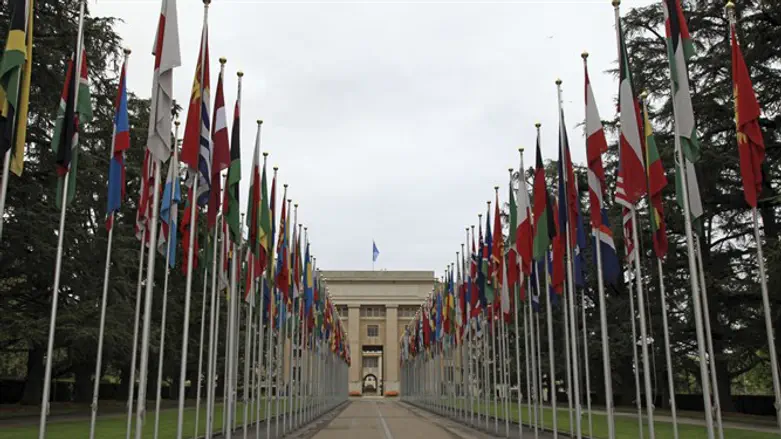
United Nations Security Council Resolution 2334 violates article 80 of the United Nations Charter and accordingly is illegal in international law.
Any attempt by the Security Council to enforce Resolution 2334 or to pass any new Resolutions based on Resolution 2334 will also be illegal.
Article 80 preserves the legal rights vested in the Jewish people to reconstitute the Jewish National Home within 22% of the territory comprised in the 1922 Mandate for Palestine (“Mandate”). That territory includes what is known today as Area "C" located in Judea and Samaria (West Bank) and East Jerusalem (“disputed areas").
Resolution 2334 seeks to erase and annul – not preserve – those vested Jewish legal rights in the disputed areas by:
- Claiming that Jews now presently living – or seeking in the future to live - in the disputed areas constitutes "a flagrant violation under international law" - when in fact their right to live there is sanctioned by Article 6 of the Mandate and Article 80.
- Alleging that the right to reconstitute the Jewish National Home in the disputed areas requires the consent of any other party.
- Calling on all States to discriminate between Jews living in the disputed areas and Jews living in Israel.
- Discouraging Jews from living in the disputed areas when article 6 of the Mandate specifically encourages close Jewish settlement in the disputed areas.
The questionable legality of Resolution 2334 needs to be urgently resolved by the Security Council itself seeking an advisory opinion from the International Court of Justice (“ICJ”) under article 96(a) of the United Nations Charter.

Egyptian Justice El Araby: ...The point of departure, or one can say in legal jargon, the critical date, is the League of Nations Mandate which was entrusted to Great Britain... The General Assembly so acted when it sought an advisory opinion in 2003 from the ICJ on the legality of the security barrier erected by Israel.
The General Assembly so acted when it sought an advisory opinion in 2003 from the ICJ on the legality of the security barrier erected by Israel.
That decision was fundamentally flawed because contrary to Article 65 (2) of the ICJ Statute - two vital documents – the Mandate for Palestine and article 80 – were not included in the dossier of documents submitted to the ICJ for consideration by then UN Secretary General Kofi Annan – an omission never explained until today.
Give the ICJ half the documents and you will only get half a judgement.
Indeed the Egyptian Judge sitting on that case – Justice El Araby - cautioned in his judgement:
“The international legal status of the Palestinian Territory (paras. 70-71 of the Advisory Opinion), in my view, merits more comprehensive treatment. A historical survey is relevant to the question posed by the General Assembly, for it serves as the background to understanding the legal status of the Palestinian Territory on the one hand and underlines the special and continuing responsibility of the General Assembly on the other. This may appear as academic, without relevance to the present events. The present is however determined by the accumulation of past events and no reasonable and fair concern for the future can possibly disregard a firm grasp of past events. In particular, when on more than one occasion, the rule of law was consistently side-stepped. The point of departure, or one can say in legal jargon, the critical date, is the League of Nations Mandate which was entrusted to Great Britain.”
The Security Council needs to ensure that this time round the Mandate and article 80 are put centre stage before the ICJ to consider when ruling on the legality of Resolution 2334. Justice for the Jewish people – and the standing, integrity and reputation of the United Nations – demands nothing less.
The Security Council cannot act in violation of the UN Charter – nor countenance any suggestion of illegality in its dealings with member States.
That is a certain recipe for absolute disaster.